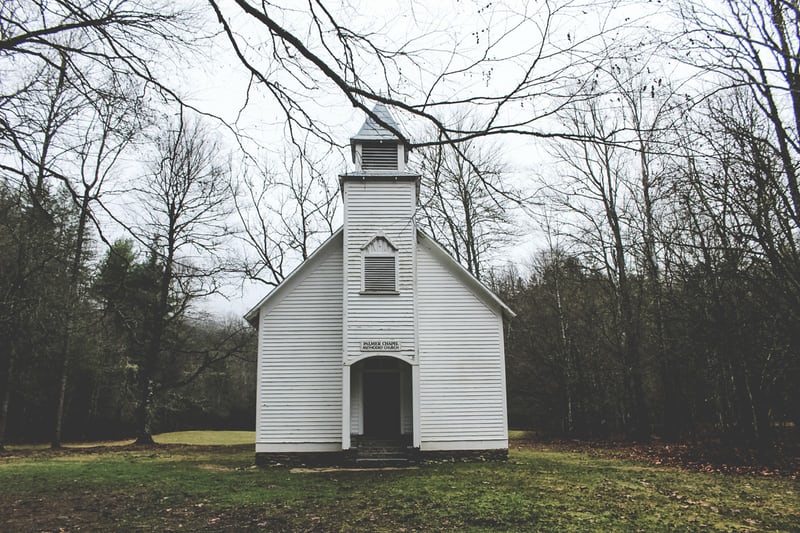or THE NATURAL HISTORY OF RELIGION
Subscribe to www.bibleinbrief.org and get monthly blogs!
Come to a pub discussion in Earls Court on Wednesday 5th Feb eventbrite: https://tinyurl.com/yjdt2c5t
Join the group“Spiritual Exploring”on facebook@revandybooks

GOOD, BAD OR BOTH?
In his preface to ‘The Screwtape Letters’ C S Lewis wrote: “There are two equal and opposite errors into which our race can fall about the devils. One is to disbelieve in their existence. The other is to believe, and to feel an excessive and unhealthy interest in them.” Exactly the same can be said about attitudes to religion.
One attitude to religion is to dismiss it completely. Richard Dawkins wrote, “I am attacking God, all gods, anything and everything supernatural, wherever and whenever they have been or will be invented.” (The God Delusion, ch 2)
I once tried to read Bertrand Russell’s book ‘Why I am not a Christian’. I gave up when I read the sentence “If Christianity were true, it would have produced something better in two thousand years than the crusades and the Inquisition.” (Well, it did. How about hospitals and the abolition of slavery for a start). The problem with this attitude is that it wilfully only sees one side of the picture.
The other attitude is fuelled partly from ignorance and partly from a fear of being discriminatory. The result is that religions are taken at face value, their rituals and rules treated as privileged. Examples are some attitudes to Jewish laws and Muslim sharia. (In contrast to France where secularisation is in a privileged position). And secular misunderstanding of religion feeds into the abandonment of traditional religious bases of festivals like Christmas and Easter. I remember in 1987 Lambeth Council decided to stop placing a large Christmas crib on Streatham Common. There were loud complaints from the churches, and from the local mosque.
Making Sense of Religion
So how can we understand religion? The way for me is an historical and developmental approach, ‘the Natural History of Religion’. Religion always goes through three stages. These three stages apply to all religions everywhere. Religions are of course not static entities; they grow and change over time and are constantly re-inventing themselves. So the same three stages will make a series of re-appearance within their life cycle.
Stage 1

The first stage is that of revelation or faith.
This is when someone has a direct encounter with the divine. It could be Moses at the burning bush; Peter saying to Jesus, “Lord, to whom shall we go? You have the words of eternal life.” It could be Siddhartha Gautama’s ‘awakening’ as Buddha, or enlightened one; or the revelation to Mohammed in a cave outside Mecca in 610 C.E. A classic account is of John Wesley’s spiritual transformation at a Moravian meeting in London on 24th May 1738. “In the evening I went very unwillingly to a society in Aldersgate Street, where one was reading Luther’s Preface to the Epistle to the Romans. About a quarter before nine, while he was describing the change which God works in the heart through faith in Christ, I felt my heart strangely warmed. I felt I did trust in Christ, Christ alone for salvation, and an assurance was given me that he had taken away my sins, even mine, and saved me from the law of sin and death.”
I believe that such an experience, an in-breaking of the divine into our ordinary consciousness, is always life-giving. It moves the person to being God-centred and other-centred rather than of self-centred and ego-driven. At last one feels truly free. What’s not to like? But until one has this experience, it sounds like a foreign language.
Stage 2

The second stage is that of religion.
This is when the revelation moves from being simply private to being shared. The revelation is put into words, e.g. the Buddha’s Eight Noble Truths, the Bible, the Qu’ran etc. It is heard, remembered and recorded by others and eventually written down as a formal account. The stories and teaching of Jesus seemed to have been handed down by word of mouth for twenty or thirty years before being committed to writing, as were many of the revelations to the prophet Muhammad. Then people are designated to explain the teachings, buildings are built to do the teaching in, and a hierarchy of learning is appointed to make sure the original revelation is properly interpreted. In other words, a religion is created. Indeed, the Muslim calendar is dated from the movement of Islam from stage 1 to stage 2, i.e. the emigration (Hijra) from Mecca to Medina where Mohammed was able to create a Muslim society.
This is inevitable because men and women are social beings. But it is a two-edged sword. It is meant to be a signpost, but it can all too easily become a tentpole. As a signpost it points men and women back to the original source of revelation, so that they too may have a direct encounter with the divine; or at least be on a life-path with such an encounter as the end-point. But it all too easily it becomes a tentpole, a centre of domesticity, fencing off the original revolution with a set of expectations, aesthetic decorations and house rules so that it becomes our ego-identity. “This is me, and I will fight anyone who tries to take it away”.
The former leads to a radical de-selfing, in which we become open to God, the world and our fellow beings. The latter enshrines our egoism., which we sanctify in the name of a higher purpose. Our ego is happy that it has a club of like-minded humans around us and so confirms our hope that we are OK. Clubs, by definition, have borders, entry rules and normative activities. People in other clubs can then be viewed as the enemy, or if not the enemy, at least peculiar. The history of all religions amply illustrates this fact. (So also does nationalism, politics and football. It is a basic human trait).
Stage 3

The third stage is that of power.
When religions attain power, they can become seriously toxic. It is easy to make a list: the Crusades, the Inquisition, Islamic terrorism, Hindu nationalism. More subtle is the ‘soft power’ used to dominate a group. Group loyalty is proclaimed as an overarching good. Freedom to have one’s own thoughts or relationships are heavily policed and wrong ways punished by exclusion from the group. Examples are the patriarchal subjugation of women, the manufacture of guilt feelings, the persecution of those who wish to follow a different way. Those who want to open themselves to the original inspired revelation may well find it outside their original faith community.
I am a member of the Church of England, which I recommend because it is relatively powerless. But when it did have power, in the reign of Charles II (1660-1685), it was a persecuting church. John Bunyan, the author of ‘Pilgrims Progress’, was imprisoned for twelve years. The quarterly ‘Meetings for Sufferings’ of the Society of Friends (Quakers) tried to help Quakers being persecuted, and remembered those who had died from mistreatment in prison. Traditionally the Shiite branch of Islam did not seek political power. Just look at what it has turned into since the Iranian revolution of 1979!
So – is religion good, bad or both? The answer is, Yes!
Join the discussion!
Subscribe to www.bibleinbrief.org and get monthly blogs!
Come to a pub discussion in Earls Court on Wednesday 5th Feb eventbrite: https://tinyurl.com/yjdt2c5t
Join the group“Spiritual Exploring”on facebook@revandybooks

